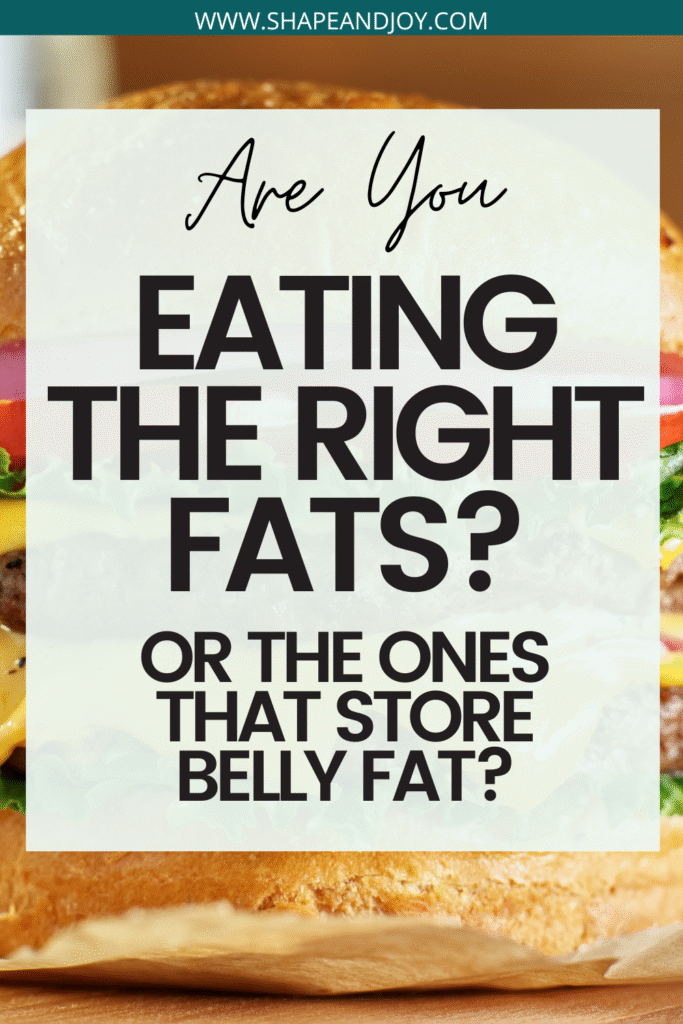This post may contain affiliate links, which means that I may earn a commission if you click on the link, with no cost for you. It’s one of the ways I support my blog. You can read more about this here.
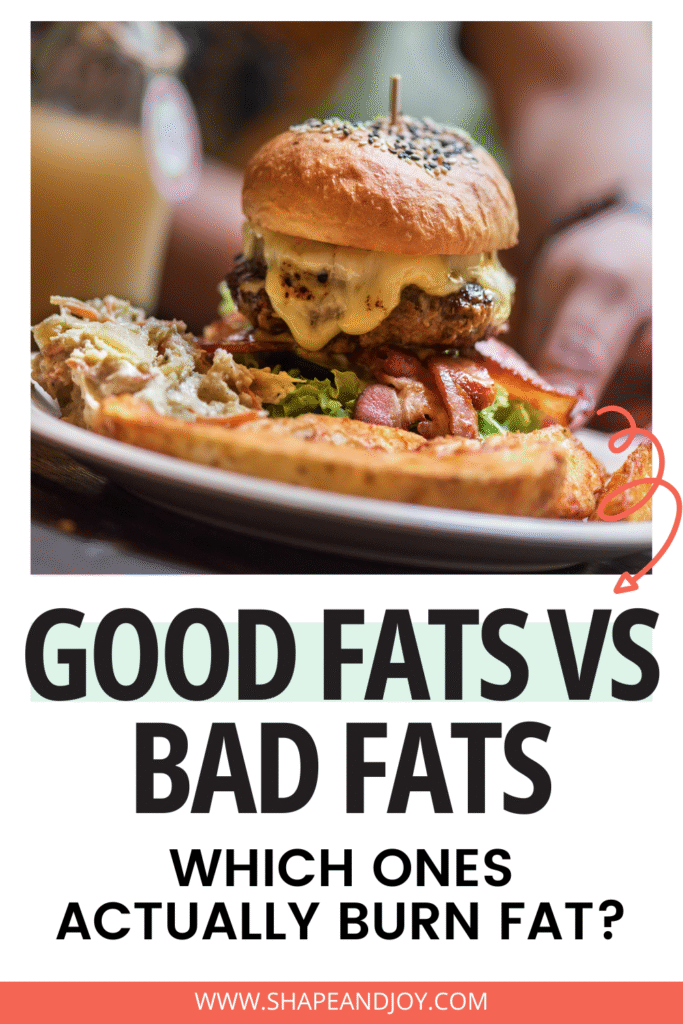
You’ve been told for years that fat is the enemy. Low-fat yoghurts, fat-free dressings, “light” spreads, if it promised to help you lose weight by removing fat, it was labelled healthy. But here’s the truth about fats: cutting them out of your diet might be the very thing stalling your fat loss, messing with your hormones, and keeping you hungry enough to contemplate eating your own arm by 4pm.
In this post, we’re diving into the real science behind dietary fats, which ones help you burn fat, which ones make you store it, and how to use fat strategically for energy, hormone balance, and a healthy weight.
No fear-mongering. No diet culture nonsense. Just straight-talking facts… with a side of avocado.
Ready? Let’s bust some myths and reclaim fat for what it truly is: your fat loss secret weapon.
Fat Myth #1: Eating Fat Makes You Gain Fat
Here’s the shocking truth about fats: eating fat does not automatically turn into body fat. That only happens when you eat in a calorie surplus, no matter where those calories come from.
Your body needs fat for hormone production, brain function, metabolism, and appetite control. When you strip fat too low, you actually slow fat loss and increase cravings.
Healthy fats (like olive oil, avocado, nuts, and seeds) support fat burning, especially when paired with protein and flat belly foods such as vegetables, berries, and fibre-rich carbs.
Low-fat diets may look “healthy” on the label, but they’re often high in sugar and low in nutrients, aka a disaster for fat loss and energy.
If you’re trying to swap out low-fat foods for real, nourishing options, start with a good quality extra virgin olive oil or avocado oil spray. It instantly upgrades your meals and supports fat burning without adding junk.
Fat Myth #2: All Saturated Fat Is Bad
This myth is outdated.
While excessive saturated fat from processed foods can cause inflammation, small amounts from quality sources (like eggs, Greek yoghurt, dark chocolate, or grass-fed meat) can actually support hormone production, improve digestion, and help regulate appetite.
What causes issues isn’t saturated fat itself, it’s processed, low-quality sources combined with refined carbs.
That’s why learning how fats interact with carbs is essential… and exactly what I break down in Carbs: Friend or Foe? The Real Science Explained – a must-read if you’ve ever felt confused about bread, rice, or pasta.
This is where your daily habits matter. If you want the easiest way to turn this into a routine, try using a Food Journal, it’s how I stayed accountable without relying on motivation alone.
Fat Myth #3: Low-Fat Diets Are Best for Fat Loss
Let’s be honest: low-fat diets are one of the biggest reasons so many people feel constantly hungry, moody, and stuck on the weight loss hamster wheel.
When you remove fat, you remove satiety, that deeply satisfying feeling that tells your brain, “I’ve had enough, I’m good.” Without it:
- You eat more frequently
- You crave sugar
- Your blood sugar crashes
- You end up overeating later (usually on the exact foods you were trying to avoid)
And here’s the sneaky bit the food industry doesn’t tell you:
When manufacturers remove fat, they usually replace it with sugar, artificial flavours, or gums to make the product taste good again.
Sounds innocent, but it’s a metabolic nightmare. Sugar spikes your blood sugar quickly, causing a sharp rise in insulin (your fat-storage hormone). Then your blood sugar crashes, leaving you even hungrier than before.
Meanwhile, fat would’ve slowed digestion, stabilised energy, and helped regulate those hunger hormones ghrelin and leptin.
So low-fat doesn’t mean healthier… it often means higher sugar, more cravings, increased belly fat storage, and zero satisfaction.
Healthy fats are actually one of the best fat burning foods because they:
- Keep you full for longer
- Support hormone production (essential for fat loss)
- Help your body burn stored fat more efficiently
Low-fat might make the scale dip for a week (mostly water weight), but it doesn’t support long-term fat loss, muscle retention, or metabolic health.
The solution? A balanced, whole-food diet with the right fats, not a fear-based, fat-free approach that leaves you hungry and hormonally out of sync.
📌 Pin this for later! ⬇
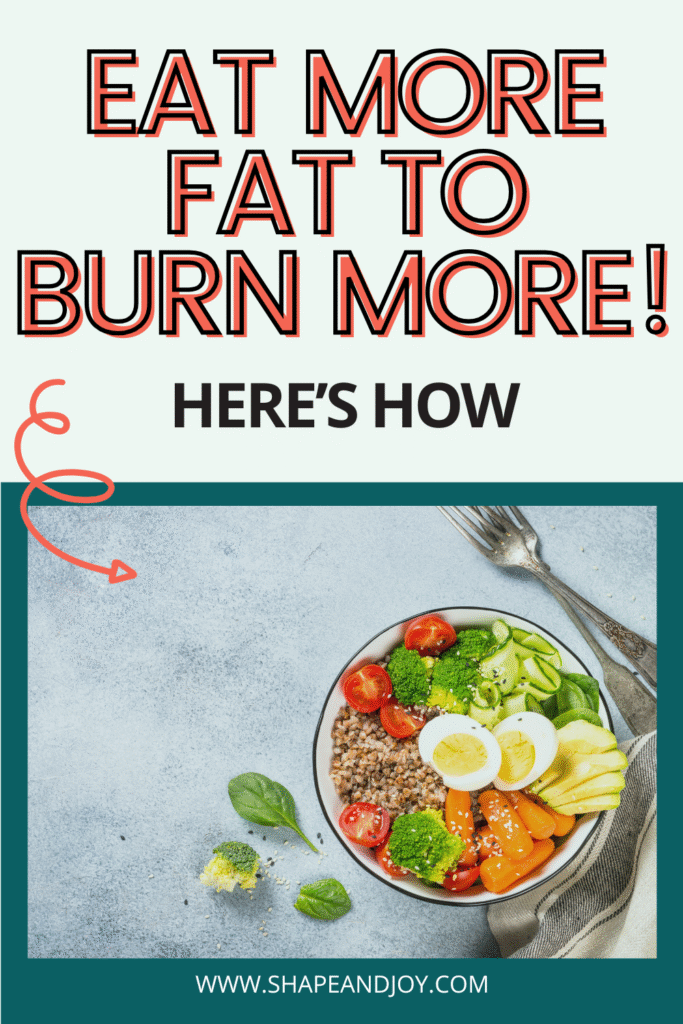
Fat Myth #4: Oils Are All the Same
Not even close. The truth about fats is that quality matters more than anything. Cold-pressed olive oil, avocado oil, coconut oil, and ghee support fat burning and reduce inflammation.
Meanwhile, many vegetable oils (like soybean, corn, and sunflower oil) are heavily processed, oxidised, and can actually trigger fat storage.
Fats That Support Fat Loss
- Olive oil (rich in anti-inflammatory antioxidants)
- Avocado oil (supports heart and hormone health)
- Coconut oil or MCT oil (quick energy + boosts metabolism)
- Omega-3 fats from salmon, mackerel, chia, and flax seeds (great for fat loss and digestion)
Fats That Block Fat Loss
- Trans fats (in processed snacks, margarine)
- Industrial seed oils (can drive inflammation and cravings)
If you want a simple rule: if it’s cold-pressed, naturally occurring, or grown from the ground, it’s usually a win.
If you’re cooking at home, a high-quality non-toxic pan makes all the difference. Stainless steel or ceramic pans help you cook with minimal added oils while keeping nutrients intact.
Fat Myth #5: You Should Avoid Fat If You Want to Lose Belly Fat
Actually, the opposite can be true. Visceral fat (the stubborn fat around your middle) is heavily influenced by hormones, especially cortisol and insulin.
The right dietary fats help regulate these hormones, leading to reduced belly fat over time.
Flat belly foods such as salmon, avocado, nuts, chia seeds, and olive oil help:
- Reduce inflammation
- Improve digestion
- Stabilise blood sugar
- Trigger fat loss around the waistline
Pair these fats with lean protein and fibrous veggies (aka the best fat burning foods) and you’ve got a winning combination for energy and fat loss.
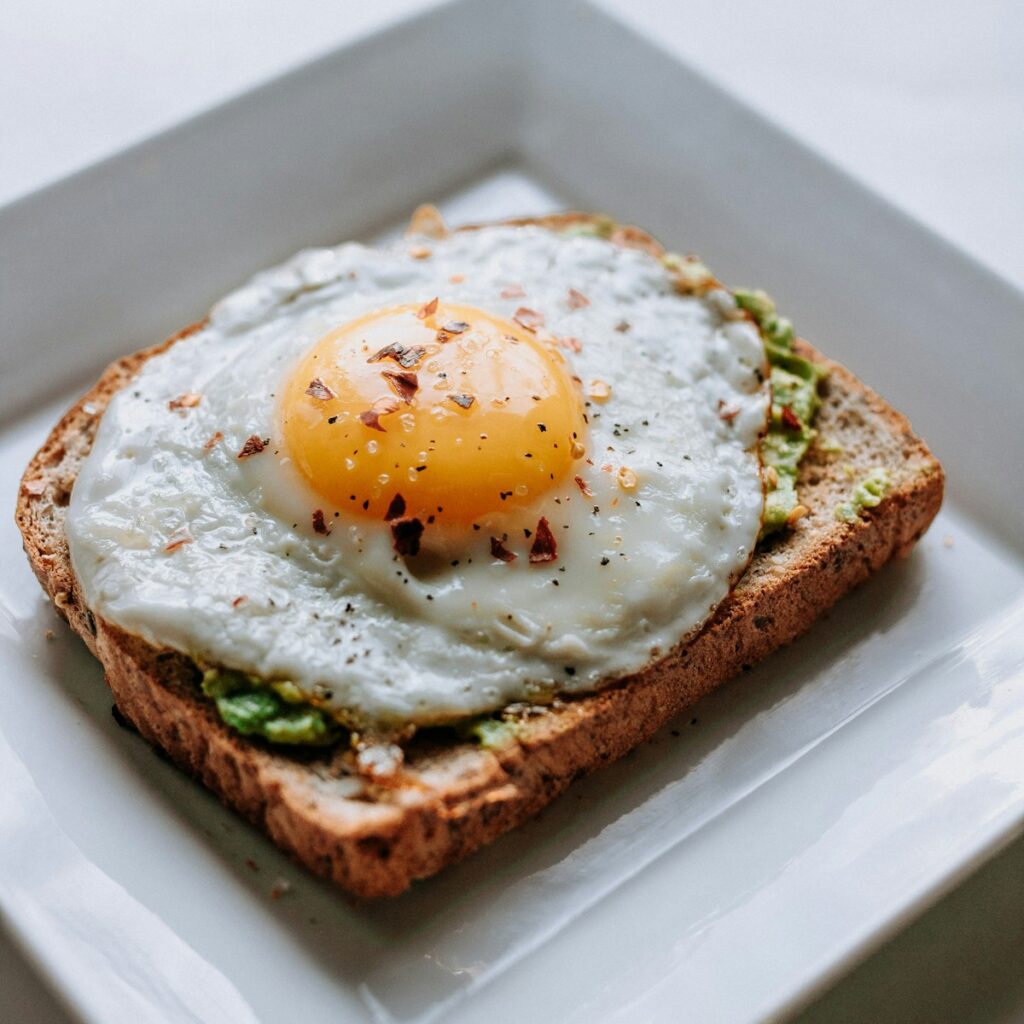
Fat Myth #6: You Can’t Burn Fat If You’re Eating Fat
This one has been doing the rounds on social media, usually alongside a “no carb diet” detox or “3 day detox cleanse.” But let’s be clear: your body burns dietary fat and stored fat differently.
If you eat the right kinds of dietary fat, you can actually increase fat burning because these fats support metabolism and increase satiety, preventing overeating later.
It’s not about cutting fat. It’s about choosing the right fats at the right times. This is where smart meal planning, balanced breakfast recipes, and digestion-friendly foods are game changers.
Check out Do You Really Need Supplements? (What the Science Says), if you’re worried about getting enough from you’re nutrition. It reveals which supplements actually work, which are a waste of money, and when supplementation can genuinely support metabolism and fat loss.
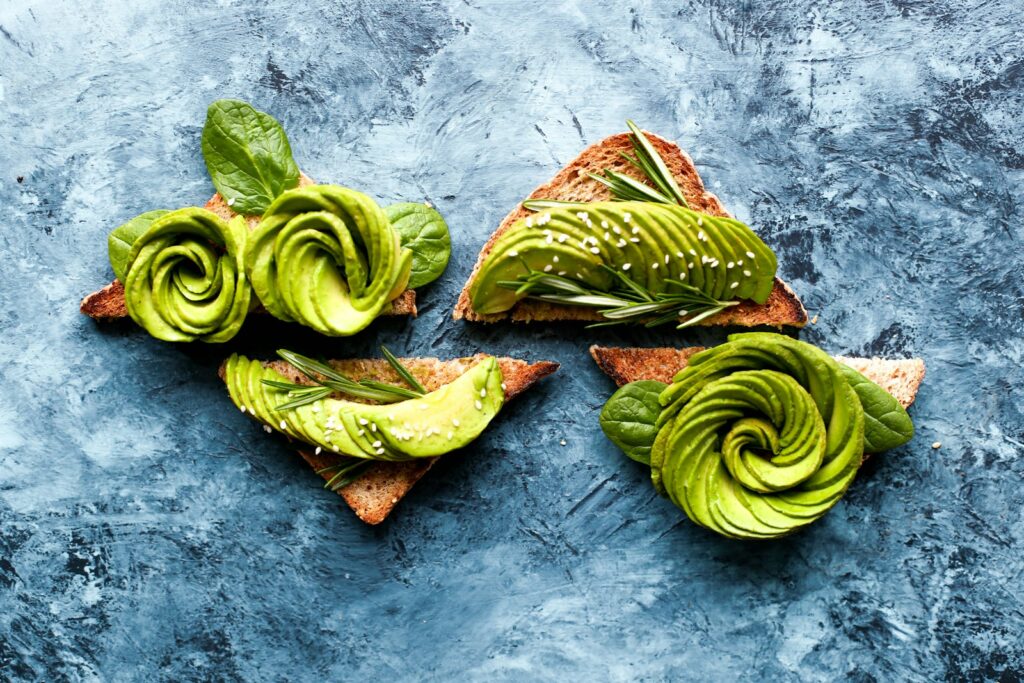
Fats vs Carbs: Which Matters More?
Both carbs and fats can support fat loss. What matters most is quality, portion, and timing. Fats are not your enemy. Carbs are not your enemy. The real enemy is misinformation.
If you’ve ever felt torn between low carb or high fat, the next logical step is to read: Carbs: Friend or Foe? The Real Science Explained This post will show you how carbs and fats work together to support fat burning, gut health, and sustained energy.
Read These Next
- Carbs: Friend or Foe? The Real Science Explained
- Do You Really Need Supplements? (What the Science Says)
- Calories vs Quality: What Actually Matters for Fat Loss
Conclusion
Fats don’t make you fat, confusion does. The right fats help your body burn fat, balance hormones, and feel energised.
The wrong fats can slow progress, trigger cravings, and increase inflammation. When you know the difference, you unlock the most sustainable path to a healthy weight.
Next Steps
“Your body isn’t broken, your nutrition strategy just needs better information.”
Read This Next: Carbs: Friend or Foe? The Real Science Explained
Check out the full series: 10 Nutrition Myths That Are Sabotaging Your Health (and the Truth Instead)
📌 Pin this for later! ⬇
